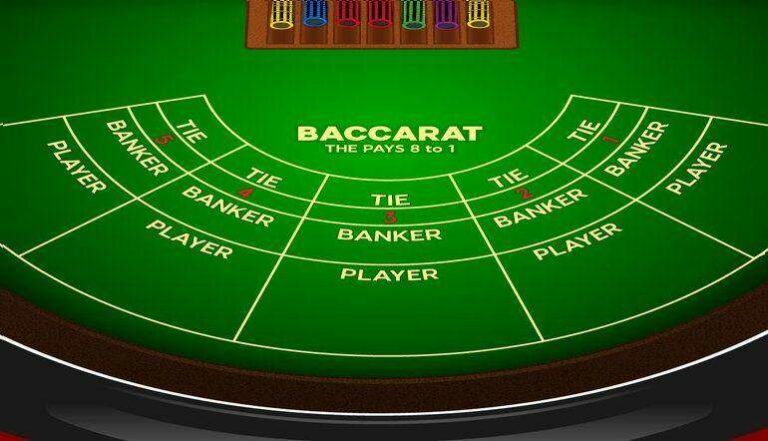When a team scores a touchdown, they have the option to score an additional one or two points. An octopus in football occurs when a player scores a touchdown for six points and scores the subsequent two-point conversion for a total of eight points. The two-point conversion begins with the ball on the two-yard line, and a team is awarded two points if they can cross the goal line.
Sportsbooks now offer an octopus prop bet in games. This could be a general “yes or no” prop bet on any octopus scored in a game, or an individual prop bet on whether a specific player will tally an octopus in a game.

How Common Is An Octopus In Football?
An octopus has occurred 188 times since the NFL implemented the two-point conversion in 1994, or approximately 6.2 times per season. An octopus is expected to occur approximately 2.25% of the time.
- During the first year of the rule change in 1994, coaches embraced the two-point conversion and an octopus was recorded 13 times in the initial season.
- In 1995, the novelty wore off and only 5 octopi were recorded.
- Since 1994, there has been at least 1 octopus scored in every season.
- In 2001, only 1 octopus was recorded. Qadry Ismail, a wide receiver from the Baltimore Ravens, tallied the lone octopus during Week 6 of the 2001 season.
- Between 1994 and 2014, an octopus occurred 5 times per season. Extra points were nearly automatic with a 99.3% success rate by kickers prior to 2015.
- Then, in 2015, the NFL moved back the spot of an extra point kick by 13 yards, which was previously at the two-yard line. With a longer extra point, the success rate dipped to 94.2%, which altered the strategy for two-point conversions. If a team missed an extra point earlier in the game, the head coach opted for a two-point conversion later in the game. As a result, the frequency of an octopus jumped to 88 instances since 2015, or 9.7 octopi per season.
- In 2018, the NFL set a record when an octopus occurred 15 times in the same season.
- In the 2023 NFL season, an octopus was recorded 11 times.

How To Make An Octopus Bet
Sportsbooks adopted the universal odds for an octopus bet as follows:
- Yes for any player to score an octopus +1400
- No for no players to score an octopus -2500
For this prop bet, a $100 wager on any octopus paid out $1400. A prop bet for an unsuccessful octopus was set as a huge favorite at -2500 odds, which meant a bettor had to lay $2500 for a chance to win $100.
If there is significant action wagered on an octopus, a sportsbook will adjust the odds, which tends to occur in the Super Bowl.
An octopus bet could be found in the prop bets section for an individual game. Depending on the sportsbook, they will list a general yes/no prop bet: “Will any player score an octopus?”
Some NFL sportsbooks might offer an individual player prop bet, listing a specific player to score an octopus. Depending on the sportsbook, you might have to click on a specific player’s name to find out if they’re offering any action on an octopus.
Expert Tips For Octopus Bets
As mentioned, a two-point conversion begins with the ball on the two-yard line, and a team is awarded two points if they can cross the goal line. Most defenses set up their goal-line defense to stop a short yardage play like a running play. Offensive coordinators often call passing plays to deceive the defense.
Out of 188 octopi, a player scored a two-point conversion with a reception 121 times and only rushed 61 times. Wide receivers tend to score an octopus with more frequency over running backs.
Octopus bettors seek out lopsided matchups with a team’s best wide receiver against an opponent’s subpar secondary, or superior running back against an opponent with a porous run defense.
Versatile running backs can score on a run or pass. The current NFL is a pass-happy league, so it’s not a surprise to see running backs utilized more as a pass catcher in modern offenses.
If you’re looking to make an octopus wager, keep a close eye on running backs who are an integral component to their team’s passing attack. In the 2023 season, Breece Hall from the New York Jets led the NFL with 76 receptions, followed by Alvin Kamara (75) and Christian McCaffrey (67).

Seven different quarterbacks scored an octopus with a rushing touchdown followed by a two-point conversion. Philadelphia Eagles quarterback Jalen Hurts is the only quarterback to do it twice.
Super Bowl Octopus Bets
Caesars Palace in Las Vegas became the first sportsbook to offer an octopus as a prop bet during Super Bowl LIV.
Since the adoption of the octopus terminology in 2019, Jalen Hurts is the only player in Super Bowl history to have recorded an octopus.

Hurts’ octopus occurred during the fourth quarter in Super Bowl LVII. The Eagles trailed the Kansas City Chiefs by eight points. Hurts scored a two-yard rushing touchdown when the Eagles ran the Tush Push. On the ensuing two-point conversion, Hurts scampered into the end zone to tie the game which marked the first octopus in Super Bowl history.
Taylor Swift’s Impact On Super Bowl Octopus Bets
Pop star Taylor Swift began dating Kansas City Chiefs tight end Travis Kelce at the start of the 2023 NFL season. The initial rumors caused quite a stir on social media when Swift appeared at her first game in September to watch her new beau in person.
Swifties, Swift’s legion of fervent supporters, became instant fans of Kelce and the Chiefs. Fathers were faced with an unusual phenomenon when their daughters showed a sudden interest in football. As the season progressed, more women became interested in the NFL.

During the regular season, Kelce saw an uptick in prop bets across the board including touchdowns. His spike in popularity carried over into the postseason and oddsmakers adjusted their odds to incorporate the Taylor Swift Effect for Super Bowl LVIII.
Kelce scored five two-point conversions during his career, but he had never scored an octopus. Despite those stats, Kelce was a popular pick to score an octopus in Super Bowl LVIII at +3000 odds. Although I’m not a Swifite, I jumped on the Kelce bandwagon with an octopus bet.
After Hurts tallied the first octopus in the previous Super Bowl, an octopus prop bet was more popular than ever entering Super Bowl LVIII, which affected the odds. A successful octopus prop bet at DraftKings would’ve paid out +1100 odds, and an unsuccessful octopus was an overwhelming favorite at -6000 odds.
The Chiefs edged out the 49ers, 25-22 in overtime, to win back-to-back championship. Kelce caught nine passes for 93 yards, but did not score a touchdown, so he was ineligible for any octopus prop bets. As expected, there was not an octopus scored in Super Bowl LVIII.
Who Has The Most Octopi In Football?
Running back Todd Gurley holds the all-time NFL record with four octopi, which he recorded as a member of the Los Angeles Rams.

Gurley was the first player to record an octopus twice in the same game. In Week 2 of the 2018 season, the Rams lost their kicker to an injury at the start of a game. Without a kicker, the Rams were forced to utilize the two-point conversion after a touchdown and Gurley happily obliged.
Gurley scored three octopi in the 2018 season to tie Hall of Fame wide receiver Randy Moss for the NFL record. Gurley broke the record in 2019 with his fourth octopus.
Why Do They Call It An Octopus In Football?
The octopus was coined by sportswriter Mitch Goldich in March 2019. He mentioned an octopus in one of his columns for Sports Illustrated to commemorate the 25th anniversary of the NFL’s adoption of a two-point conversion. The catchy moniker stuck, and the octopus is now a part of the NFL lexicon.
The origins occurred a year earlier in October 2018. Wide receiver Torrey Smith from the Carolina Panthers caught a touchdown pass from Cam Newton, then added a successful two-point conversion on another pass from Newton. Smith tallied eight points, which caught the eye of Goldich.
Goldich asked his followers on social media, “There should be a cool name for what Torrey Smith just did: Scoring a TD and then also scoring the 2-point conversion right afterward. What should we call this?”
There should be a cool name for what Torrey Smith just did: Scoring a TD and then also scoring the 2-point conversion right afterward.
What should we call this?
— Mitch Goldich 🐙 (@mitchgoldich) October 14, 2018
Goldich’s friend Mike Wallace suggested “Octopus” because an octopus has eight tentacles. It made sense, and the rest is history.
Octopus Stats & Facts
- The first octopus was recorded in Week 2 of the 1994 NFL season. New York Jets wide receiver Rob Moore and New Orleans Saints wide receiver Torrence Small both scored an octopus on the same day.
- In 1996, Moore and Atlanta Falcons wide receiver Terance Mathis became the first players to record a second octopus in their careers, which also happened on the same day in Week 4 of the 1996 season.
- Denver Broncos running back Terrell Davis became the first player to score an octopus in the playoffs during the 1996 season.
- Running back Ryan Mathews from the Philadelphia Eagles became the first player to secure an octopus two times in the same season. In 2016, Mathews recorded an octopus in Week 10 and did it again in Week 15.
- There’s a popular Twitter account known as the NFL Octopus Tracker that updates fans on any Octopus attempt.




















